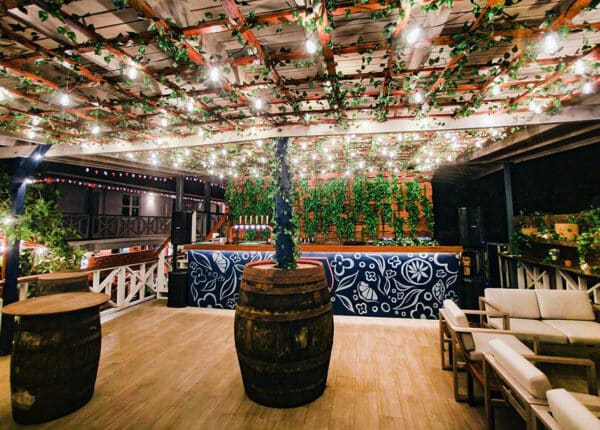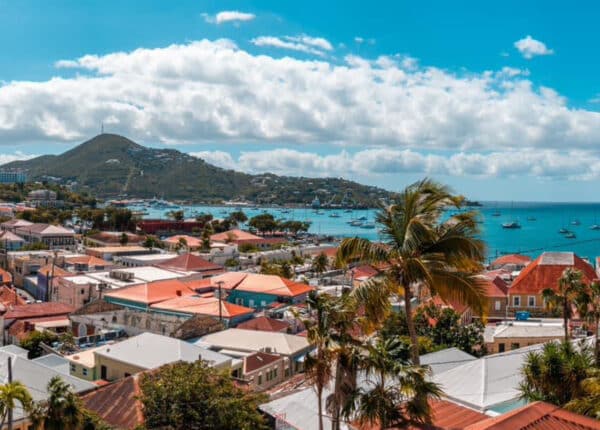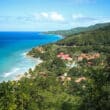By Wayne Campbell
Op-Ed Contributor
“GENDER EQUALITY is more than a goal in itself. It is a precondition for meeting the challenge of reducing poverty, promoting sustainable development and building good governance.” — Kofi Annan. Former UN Secretary General.
Historically, women from all across the world have been subjected to various forms of structural discrimination. Discrimination against women and young girls is widespread exists in almost all societies, more so in the developing world.
In many parts of the world, women remain voiceless and walk in the shadow of men. Many societies in an effort to right this wrong have gone the route of legislating gender quotas to recruit women into enter main stream politics.
A gender quota is a mandate that women must constitute a prescribed percentage of the number of seats in a body whether in parliament or on a Board.
According to the Global Database of Quotas for Women, women make up 18.4 per cent of the members of parliaments across the world. Interestingly, 51 per cent of Jamaica’s population are women, yet only 12 percent of our parliamentarians are women, well below the global figure for women in politics.
Despite Jamaica’s progress in having female representation at the highest level in politics, it is very clear that Jamaica has a far way to go in terms of gender equality and gender parity.
There are 63 seats in Jamaica’s parliament and of that number eight are represented by women which is merely a 12.7 percent participation rate of women at the highest level of decision making in the country.
Over the years, female participation in politics in Jamaica has remained stagnant and therefore we must find a way or implement measure to improve these statistics. Gender parity is simply equality among men and women.
In many societies, gender parity is just a theoretical concept. Women, to a large extent, are still subjected to various forms of discrimination and continue to be treated as second class citizens in many countries.
There are three basic types of gender quota systems. These are: the Reserved Seats quotas, Legislated Candidate Quotas and the Voluntary Political Party Quotas. While reserved seats regulate the number of women elected, the other two forms set a minimum for the share of women on the candidate lists, either as a legal requirement or a measure written into the statutes of individual political parties
According to the Quota Project Global Database of Quotas for Women, Rwanda ranks number one at sixty three point eight per cent (63.8%). As of February 1, 2014 Cuba is ranked third with 48.9 percent.
Interestingly, Nigeria which is currently making the international news with the kidnapping of almost three hundred schoolgirls from their dormitories on the night of April 14, 2014 is ranked at 131 of the 147. Nigeria’s lower house of Parliament has 360 seats and of that number only 24 seats are occupied by women. The country has a female representation in politics of just six point seven per cent (6.7 percent).
Nigeria is Africa’s most populous country with a population of almost 200 million yet the voices of women and girls are muted for the most part. The kidnapping of the Nigerian schoolgirls has reinforced this most troublesome reality which is not only confined to Nigeria but in fact to most of the countries in Africa as well as the Islamic countries.
On the other hand female participation in politics is much better in the Scandinavian and European countries where gender equality and the empowerment of women are taken seriously.
In September 2000, heads of state from all over the world agreed to take concrete steps to commit to a plan of action that would considerably reduce discrimination women face.
This plan of action resulted in the creation of eight Millennium Development Goals (MDGS). Gender equality is listed among the MDG goals.
Each MDG has specific targets all aimed at empowering women and improving the lives of women worldwide. Promoting gender equality means ensuring that women have the same chances as men in all spheres of their development such as access to an education. Two–thirds of the 880 million illiterate adults in the world are women. It bears thought if more women are illiterate than men, then women are less likely to be employed than men. Disturbingly, only 6 per cent of Cabinet posts are held by women globally.
Interestingly, in some societies, the issue of gender quotas has gone beyond politics and has entered the world of business.
For example, in the European Union only three point two per cent of the Presidents or Chairs of the largest publicly listed companies are women. However, this figure is much higher in the Scandinavian countries which pride themselves as being forerunners in gender parity and gender equality.
The issue the Jamaican society faces is not one associated with the underrepresentation of women at the helm of the decision making process. After all, the society has a female Prime Minister.
The issue is one in which the state must increase the number of women who make themselves available for representational politics and in fact get elected to serve.
Jamaica’s present First Past the Post Electoral System is arguably less suited for the implementation of gender quotas than is the Proportional Representation System which exists in most of Latin America.
We must be cognizant of the fact, however, that having a legislated gender quota in parliament will not necessary result in the political empowerment of our women.
In fact, by going the route of the mandatory placement of women at the representational level we may just create a cadre of “quota women” which is just as bad as not having both sexes equally represented.
We should not appoint women to serve on boards of publicly listed Boards solely because they are females. Instead, we should thrive to create a cadre of capable and competent professionals who are willing and able to serve regardless of their sex.
Gender imbalance is not solely a numerical construct that we can pinpoint instantly — gender imbalance is also a socially defined construct which many women grapple with even when the opportunities to advance present themselves.
Until Jamaican society arrives at the point of realization that our values and attitudes are in need of a cultural and generational shift, we will be only side stepping the core of the problems besetting us as a society.
In order to have respect for women, our young men and boys must see older men treating women in a respectful manner. After all, we live what we learn.
If a boy grows up seeing his father beating or verbally abusing his mother, chances are he, too will become an abuser. We need to ask ourselves about what we can do to foster and create equal opportunities for the sexes.
Jamaica needs to fashion a society in which citizens rights are properly entrenched in the Constitution and respected regardless of their sexual orientation, religious and or political persuasion.
We need to work towards fostering an atmosphere of social justice for all Jamaicans.
We need to create and cultivate an atmosphere where we respect the sanctity of life and respect people’s property.
We must seek to empower our women in all areas of their lives, be it in the private or public spheres.
At the end of day, men must be included in the discourse on gender equality, too — it cannot and should not be a conversation only among women. A level gender playing field not only benefits women, but invariably the wider society benefits from women’s empowerment.
There can be no sustainable development without gender equality.
Wayne Campbell is an educator and social commentator with an interest in development studies as they affect culture and or gender issues.He can be reached at waykam@yahoo.com.
Note: the opinions expressed in Caribbean Journal Op-Eds are those of the author and do not necessarily reflect the views of the Caribbean Journal.







